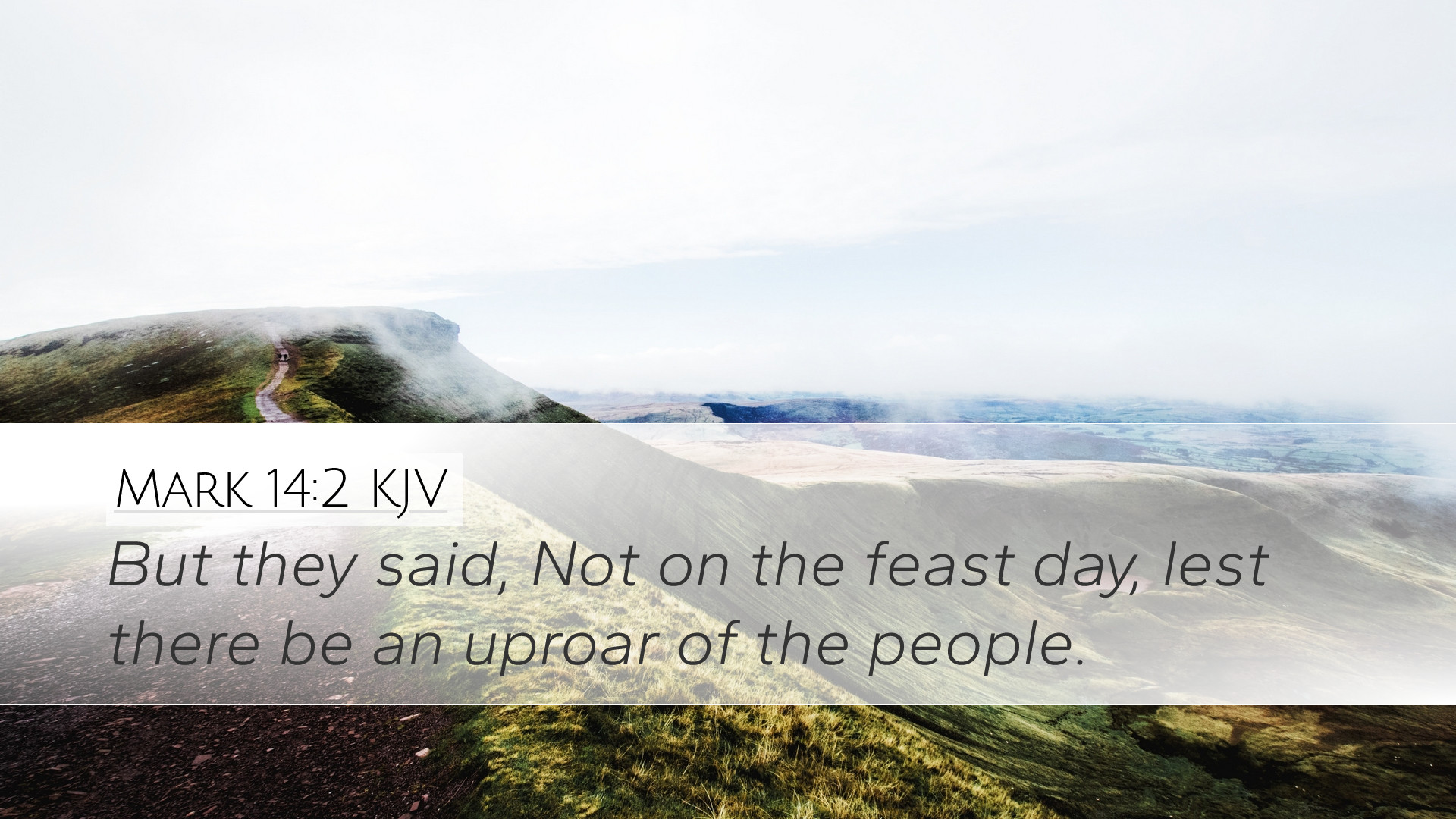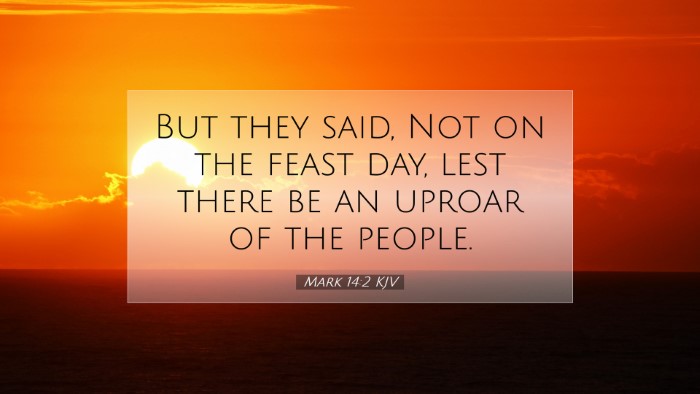Commentary on Mark 14:2
Verse: "But they said, Not during the feast, lest there be an uproar of the people."
Introduction
This verse sits at a pivotal moment in the Gospel of Mark, illustrating the tension between the religious authorities and the popular support for Jesus. Mark 14:2 captures the plotting of the chief priests and scribes, revealing their intent to arrest Jesus stealthily rather than during the Passover feast. This decision stems from their understanding of the volatile atmosphere among the people, who regard Jesus as a prophet and a leader.
Contextual Analysis
To fully grasp the implications of Mark 14:2, it is essential to consider the surrounding context:
- Setting: This verse occurs shortly before the crucifixion, during the Passover, a time of heightened religious observance and celebration.
- Characters: The chief priests and scribes are the primary actors, representing religious authority opposed to Jesus' ministry.
- Public Sentiment: The people viewed Jesus favorably, creating a precarious situation for the authorities, who feared unrest.
Insights from Public Domain Commentaries
This commentary synthesizes key insights from Matthew Henry, Albert Barnes, and Adam Clarke.
Matthew Henry’s Perspective
Matthew Henry emphasizes the cunning of the religious leaders. He notes that their reluctance to seize Jesus during the feast highlights their fear of public backlash. Henry illustrates the leaders’ inner dilemma, torn between their desire to eliminate Jesus and the potential consequences of acting during a time when the multitude honored Him. This commentary encourages readers to reflect on the contrast between the leaders' political savvy and Jesus' singular devotion to His mission.
Albert Barnes’ Analysis
Albert Barnes provides an analysis of the timing and significance of the leaders' decision. He points out that the feast of Passover was a particularly dangerous time for the authorities to act against Jesus. The reference to fearing an "uproar" indicates that Jesus had gained considerable popularity among the masses.
Barnes compels readers to recognize the importance of timing in the unfolding events of Jesus' passion narrative. The chief priests and scribes' decision highlights their inability to control the situation fully, showcasing the limitations of human authority against divine providence.
Adam Clarke’s Commentary
Adam Clarke delves into the historic and cultural context of the Passover festival. He notes that the city swelled with pilgrims, and any disruption could lead to a significant disturbance. Clarke emphasizes that the leaders' discourse not only reflects their intention to avoid provoking the crowd but also displays their understanding of public opinion and its potential to thwart their plans.
Clarke’s insights call attention to the moral implications of political maneuvering, reminding the reader that the quest for power can often lead to a disregard for righteousness.
Theological Implications
Mark 14:2 invites theological reflection on several levels:
- The Sovereignty of God: Despite human scheming, God's plan unfolds according to His divine timing. The fear of the chief priests foreshadows God's ultimate sovereignty over the narrative of Jesus’ arrest and crucifixion.
- Human Rebellion: The unwillingness of the priests to act in an openly hostile way towards Jesus reflects ongoing human rebellion against divine authority.
- Public vs. Private Actions: This verse speaks to the dichotomy between public perception and private intentions, inviting an examination of integrity in leadership.
Conclusion
Mark 14:2 serves as a critical intersection of political, social, and spiritual dynamics as the events leading to Jesus' crucifixion crystallize. The verse challenges pastors, students, and theologians alike to reflect on the nature of authority, the complexities of public opinion, and the assurance of God's providence in the midst of human schemes. As we continue to study this passage, let it remind us of the eternal themes of faithfulness, truth, and the ultimate sovereignty of God in human affairs.


